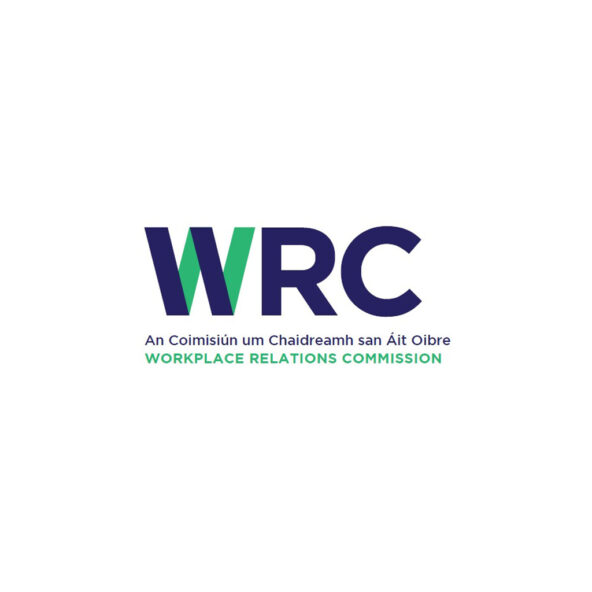When you experience discrimination, you can do something about it.
We are here to give you information about your rights under equality and human rights law in Ireland.
Our information is:
- mobile friendly
- available in multiple languages
- fully accessible
- updated regularly.
All complaints under the Employment Equality Acts and the Equal Status Acts may be brought to the Workplace Relations Commission (WRC).
The Irish Human Rights and Equality Commission can only provide you with information. We cannot give you legal advice or comment on any individual case.
This means that on this website, we tell you what the law says.
We cannot tell you how the law applies to your situation, or what you should do next.
The Workplace Relations Commission (WRC) is the body responsible for deciding on discrimination claims in Ireland in the first instance.
If you think you need legal advice, you should talk to a solicitor, who can advise you.
How do I know if I have experienced discrimination?
Discrimination is when someone treats you worse or ‘less favourably’ than another person is, has been, or would be treated, in a similar situation, because you fall under the ‘protected grounds’.
You can experience discrimination in four different ways:
Where someone treats you less favourably than another person in a similar situation because of a different personal characteristic or circumstance that falls under the protected grounds.
Where a policy or provision applying to everyone puts you at a disadvantage because of a personal characteristic or circumstance that falls under the protected grounds.
Where someone treats you less favourably than another person in a similar situation because they have incorrectly assumed (‘imputed’) that you fall under the protected grounds.
Where you are treated less favourably than another person in a similar situation because of your connection or relationship with someone who falls under the protected grounds.
What are the protected grounds?
Under Irish law, the protected grounds are:
If someone treats you less favourably because you are a different gender to someone else.
If someone treats you less favourably because you have a different civil status to someone else.
If someone treats you less favourably because you have a different family status to someone else. (Note: some situations falling within this ground may also fall within the gender ground.)
If someone treats you less favourably because you have a different sexual orientation to someone else.
If someone treats you less favourably because you are older or younger than someone else and it is without a good reason (‘objective justification’). (Note: this ground does not cover alleged discrimination against children in schools.)
If someone treats you less favourably because you have a different religion to someone else, or, for example, because you do not have a religion and someone else does.
If someone treats you less favourably because you are a member of the Traveller community and someone else is not.
If someone treats you less favourably because you have a different skin colour, nationality or ethnicity to someone else.
If someone treats you less favourably because you have a disability and someone else has a different disability or does not have a disability.
If someone treats you less favourably because you are receiving rent supplement, housing assistance payment (HAP), or another type of social welfare payment and someone else is not.
What equality laws protect me?
The main laws that protect you against discrimination are:
Employment Equality Acts
The Employment Equality Acts (EEA) protect you from discrimination at work.

Equal Status Acts
The Equal Status Acts protect you against discrimination when accessing goods or services

The Intoxicating Liquor Act protects against discrimination on or at the point of entry to a licensed premises
Does the Your Rights Service provide legal advice?
No.
The Your Rights Service can only provide you with information. We cannot give you legal advice or comment on any individual case.
This means that we can tell you what the law says, but we cannot tell you how the law applies to your situation, or what you should do next.
If you think you need legal advice, you should talk to a solicitor, who can advise you.
Reasonable Accommodations
Employers, potential employers and workplaces must make ‘reasonable accommodation’ for people with a disability.
This means that if you have a disability, your employer or potential employer must take effective practical steps to enable you to do your job, apply for a job, attend training or make progress in your job.
You have the right to ask for reasonable accommodation both at the recruitment stage and at work. Reasonable accommodation could involve adapting premises, changing working hours or giving you different tasks. However, the measures must be reasonable for the employer as well as for you.

Factsheets
We have developed a series of factsheets on a range of topical themes emerging from our legal case work.
These factsheets will give you detailed information about specific topics.
Please note that they are for information only and are not legal advice.

Who can I complain to?
The WRC is the body responsible for deciding on claims of discrimination in the first instance.
Complaints under the Employment Equality Acts and the Equal Status Acts are made to the Workplace Relations Commission (WRC).
The WRC deals with claims related to employment and to services or goods.
Gender discrimination claims can go to either the Circuit Court or the WRC.

Report Discriminatory Advertisements
If you have seen an advertisement that shows discrimination, you can report it to us.
We have the power to bring discrimination complaints/cases in our own name before the Workplace Relations Commission (‘WRC’) where it appears that discrimination under the Employment Equality Acts or Equal Status Acts has occurred and it is not reasonable to expect the person who has been the subject of that discrimination to bring a case.

I don't see my issue?
Not all differences of treatment are seen as discrimination under Ireland’s equality laws.
This means that the Workplace Relations Commission, as the main body responsible for deciding on discrimination in Ireland, may not be able to assist you if you feel you have been discriminated against for a reason other than one of the protected categories of people (protected grounds).

Disclaimer
The information provided by the Your Rights Service, including the information on this website, is provided for information purposes only.
It does not constitute a legal analysis of any individual’s particular situation.
We try to ensure that the information we provide is accurate and up to date. However, it is not a legal interpretation of the law and should not be relied on as legal advice.
For any professional or legal advice, all individuals should consult a suitably qualified person.
*Please note that we are unable to facilitate drop-in queries at our offices.*


